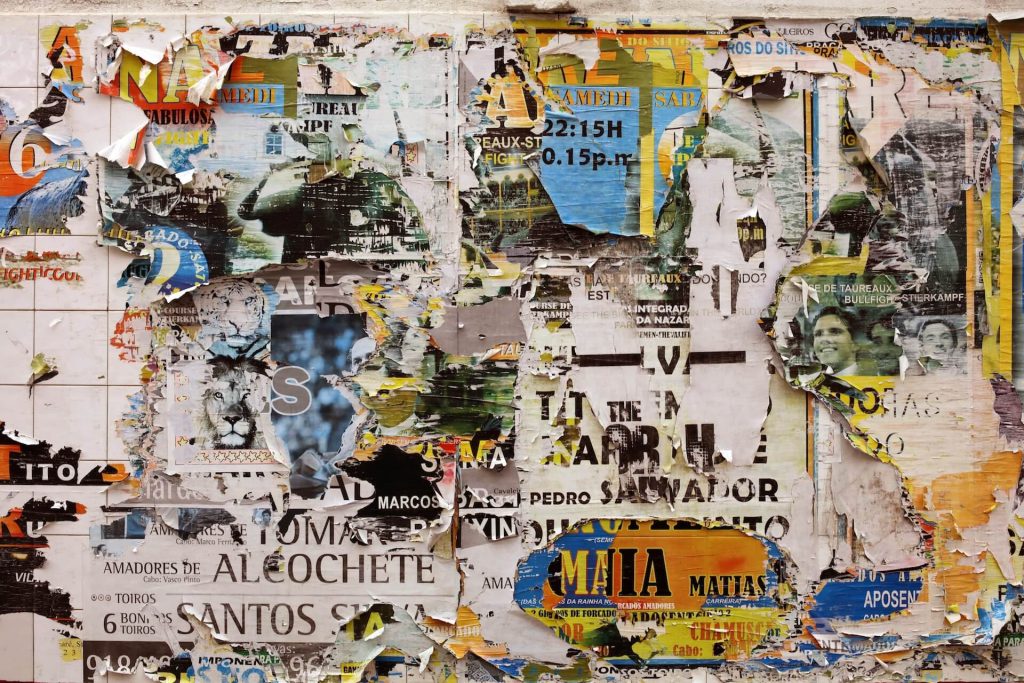On Jan. 25, in the wake of The Brunswickan’s coverage of the white supremacist posters found at UNB Fredericton, UNBSJ’s student newspaper, The Baron, published an unedited, uncensored interview and letter to the editor by Michael Thurlow, the self-proclaimed leader of the National Socialist Canadian Labour Revival Party (NSCLRP) which had claimed responsibility for the posters. This was done in the name of “unfettered freedom of speech and expression.”
The letter and interview provided Thurlow the opportunity to spread his racist views on a public platform. And Thurlow did not hold back: anti-Semitic and anti-Indigenous beliefs littered both articles published in The Baron. Thurlow claimed such reprehensible things as “[Jews] seek to undermine the National Interests for the sake of furthering the Interests of their own race” and that “Natives” needed to be “civilized” and the residential schools were “the only way to attempt” to do so. Appallingly, the editor of The Baron, Anna de Luca, gladly published all this, claiming it was her journalistic responsibility to publish whatever was submitted to her because of freedom of speech.
A day after The Baron published their articles, a letter from Sarah Villeneuve of the NSCLRP</a> was sent to The Brunswickan. The Brunswickan refused to publish this letter because we believe there is a difference between reporting on white-supremacist views, such as in our articles on the posters, and providing a public platform to spread said white-supremacist views, as The Baron did. We are also guided by an editorial policy which dictates that “we may refuse any submission considered by the Editorial Board to be racist, sexist, libellous or in any way discriminatory.” In other words, we used common sense and said “no” to Nazi sympathizers— a pretty low bar to clear when it comes to responsible journalism, but nonetheless an important one.
Things kind of blew up from there. Contributors publicly left The Baron out of disgust for the choice made by the EIC to publish the Thurlow articles. Student journalists across the country, myself included, weighed in on the journalistic responsibility and ethics that were breached by de Luca. BuzzFeed Canada, Canadaland, CBC and the Telegraph Journal, among others, picked up the story. UNB was getting a lot of media attention—just not the sort that its marketing team is hoping for.
The Canadian University Press issued a statement as well as UNB president Eddy Campbell. Both expressed their concerns about the content published in The Baron. On Jan. 31, The Baron’s board of directors issued an apology and de Luca was removed from the masthead.
Good sense, it would seem, prevailed in this situation. But the conversation arising from The Baron controversy is worth looking at a little more closely.
In the editor-in-chief’s note that ran before both the Thurlow interview and letter to the editor, de Luca wrote, “This is the complete, unedited, uncensored commentary written by National Socialist Canadian Labour Revival Party leader Michael Thurlow…Freedom of expression is a very easy standard for people to espouse. The difficult task is to defend or act upon that purported belief when called upon to do so. We at The Baron believe in unfettered freedom of speech and expression.”
By publishing Thurlow’s words as-is, de Luca provided no context for Thurlow’s content. Thurlow was granted the opportunity to spread his white-supremacist lies on a public platform without even a peep from the editor that “by the way, this guy’s a well-documented racist.” This was magnified by the fact that The Baron had not reported on the posters found in Fredericton, so that, for many readers, the Thurlow articles may have come from out of the blue.
This story could easily have been another example of the inexperience of student journalists and the mistakes resulting from it. I’ve already written</a> about the challenges and judgement calls that arise when one chooses to report on white-supremacist content. Yet de Luca refused to acknowledge the ethical failings present in her decision to spread racist lies. Instead, she went so far as to say that she was upholding sound journalistic principles. And this so-called journalistic principle was no other than freedom of speech.
But is it the role of journalists to uphold free speech? I’m not convinced it is, or at least in the way that de Luca, and others like her, think.
De Luca, and those who share her views, believe that journalists are upholders of free speech and that they must give space for the views of everyone—unchallenged and unanalyzed. De Luca herself wrote that, as editor of The Baron, she would “never censor, never correct or challenge” whatever was submitted for her to publish.
However, if journalists are not to challenge, interpret and make sense of the varied views of the public, why have journalists at all? Many so-called free speech advocates believe that truth can only be achieved when all views are presented and given equal validity through debate. Were this the case, it would create a press that serves only as a community board of opinion—where there would be no need for journalists as the middlemen.
De Luca demonstrated this view when she said she’d publish anyone’s opposing opinions on the Thurlow articles—as if her publication of them was simply a question of bias. She was using the common idea that you can “balance” any one viewpoint with additional published pieces arguing against it, thereby allowing the public to debate the views and come to its own conclusion. However, doing so assumes that all sides are valid. The Thurlow articles spread white-supremacist opinions, perpetuated racist tropes and told lies. These views are not valid, and they should not have been treated as such under the journalistic responsibility to the truth. Furthermore, when one initiates a debate that features the usual two extremes, no new insight can ever really come out of it. It’s not a question of bias or even balance; it’s about responsible, ethical journalism.
A press that merely regurgitates everything that comes its way serves only to increase confusion and argument and does nothing to help point public discourse toward truth. The role of a responsible journalist is not to give free reign to every opinion that exists, but to provide thoughtful insight and perspective and to truthfully contextualize these opinions in order to shape public discourse.
I prefer to think of journalism less as a platform for free speech and more as a responsible public forum—a concept put forth by Bill Kovach and Tom Rosenstiel in their The Elements of Journalism. In this public forum, journalists can and are encouraged to present the diverse viewpoints of the people, but the duty to present the truth must be placed first and foremost. It must be a forum rooted in sound principles, ethics and responsible reporting, where journalists provide the public with the tools—such as truth, context and background information— required for productive discourse.
This is not the type of free speech espoused by most “free-speech warriors,” but the free speech that they champion is rarely productive. Journalism should not perpetuate the same tired debates. Rather than hit post with abandon on any opinion sent our way, as journalists we must seek truth through verification and context—not provide a platform for lies in the name of objectivity, neutrality, balance and free speech.
Source:
1- Kovach, B. and T. Rosenstiel, 2014, The Elements of Journalism: What Newspeople Should Know and the Public Should Expect. New York: Three Rivers Press.




